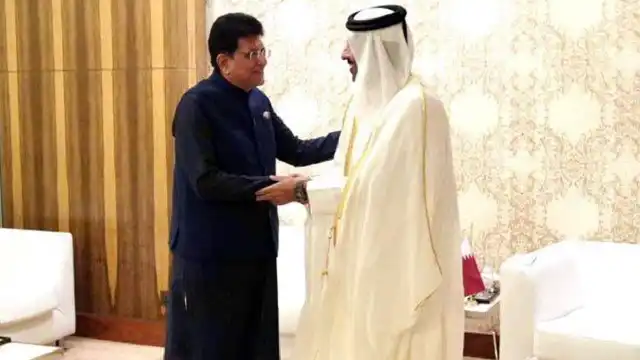India’s Commerce and Industry Minister Piyush Goyal visited Doha and held talks with Sheikh Faisal bin Thani bin Faisal Al Thani, Qatar’s Minister of Commerce and Industry, to advance discussions on a free trade agreement (FTA) between the two nations.

Doubling Trade and FTA Timeline
Goyal stated that India and Qatar are exploring ways to double bilateral trade to $30 billion by 2030, up from the current $14 billion. The FTA terms of reference are under discussion and are expected to be finalized shortly. The minister indicated that the trade agreement could be concluded by mid-2025 or the third quarter of 2026, aiming for a fast-tracked negotiation process.
Sectors with Growth Potential
The talks highlighted promising sectors for trade expansion, including:
- Electronics
- Automobiles
- Pharmaceuticals
- Processed food
- Textiles
- Gems and jewellery
- IT and emerging high-tech industries
- Solar energy
Goyal emphasized the importance of increasing business interactions between India and Qatar to realize the untapped trade potential.
Investment Commitments
In February, Qatar committed to investing $10 billion in India, with its sovereign fund planning to open an office in the country. So far, $4–5 billion has already been invested, and an additional $1–1.5 billion is in advanced stages of planning.
Strategic Importance of the FTA
India is pursuing an FTA with Qatar to:
- Diversify exports and reduce dependence on a single market.
- Protect exporters from rising tariffs in the US.
- Balance trade, which is currently heavily skewed toward energy imports, with petroleum crude and gas accounting for nearly 90% of imports.
India’s goods exports to Qatar in FY25 were approximately $1.7 billion, while imports totaled $12.5 billion. Qatar remains a key partner within the Gulf Cooperation Council (GCC), which also includes Bahrain, Kuwait, Oman, Saudi Arabia, and the UAE.
Wider GCC Engagement
India already has an FTA with the UAE and is negotiating a similar trade agreement with Oman, aiming to strengthen trade relations across the GCC region.
